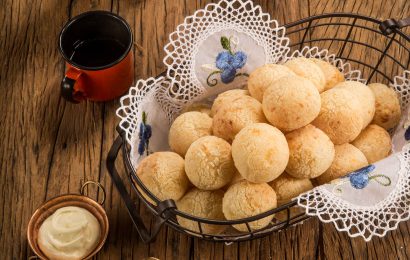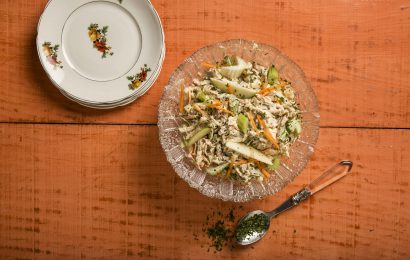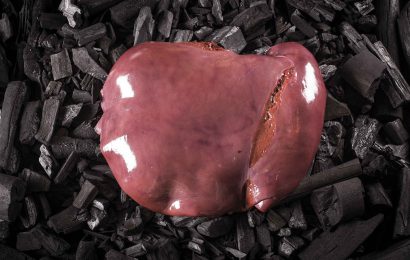Born in Santa Catarina, Max – who holds a degree in psychology – decided to change his ways into the kitchen when he was living in Ukraine. Since then, has cooked in Paraty (Rio de Janeiro), in Blumenau (Santa Catarina) until finally landing in São Paulo.
When he was 33 years old, Max Jaques decided to make a life change. He was in Ukraine to study Russian literature (“I have always had a connection with Russian language, I was already fluent in English and Spanish and went there to study Russian and to work as a translator”) , but realized that what he really wanted was to work with gastronomy.
“During this trip, it became clear to me that cultural differences are intensified through food. I spent a summer working in Chile, but didn’t notice these contrasts so clearly then, maybe because we are somehow familiar with Latin food. In Ukraine, though, the diversity of flavours was far more obvious”, says Max, who stayed in the country for 10 months. These perceptions lightened up his interest for gastronomy and for a career that allowed him to keep travelling. “In 2012, an oportunity to work in a kitchen came up”, he recalls.
He has learned how to cook in the backstage of restaurants instead of going to cooking schools. “I have worked as a waiter, a barman, an assistant in the kitchen, a cooker and a chef. And this has been my life for seven years now”, he says. In his trajectory, he worked in Paraty (Rio de Janeiro) with North-American chef Christopher Kaufmann in the project Clandestine Street Food. They made street food in a sustainable way, without plastic and exploring a seasonal menu using local ingredients. “At that time I worked with the public, in the operations, making the mise en place and at the grill plate. In Paraty I also worked at a “tapiocaria” (a place specialized in tapioca, a Brazilian traditional preparation made out of manioc) and at a French bistro”, he remembers.
After two years with the sea as his daily view, he went back to Blumenau (Santa Catarina) to work as a cook in a restaurant specialized in functional food, and stayed there for three years. “I ended up managing the restaurant and everything there was artisanal, Sauces, bread, cakes, we made everything from scratch”, he says. They served around 500 customers everyday in the lunch buffet, a la carte, in their bakery and confectionery. “We were 40 people working in two kitchens. I’ve learned a lot there.” After three years it was time to travel again. Next stop? São Paulo.
“I came to São Paulo in July of 2018 with the intention of get new directions for my career, I wanted to get out of the restaurant and show to other people how to create more positive gastronomy, from a healthy perspective not only for the body, but for the entire planet and for those who plant and cook”, he explains. He then found out about Gastronomia Periférica, a social project in the South of the city that aims to use gastronomy as a way to transform society. “I teach hot and cold kitchens to adults in a situation of social vulnerability.”
His most recent step was to set up his own place. “I opened a small place in Bela Vista (a neighbourhood in São Paulo). I occupy a kitchen inside a feminist collective with a tailor, a second-hand shop and a hairdresser. We are investing in new ways of selling food, different from what we are used to in restaurants”, he says. The place opens from Wednesdays to Saturdays and is a sort of laboratory where Max can research, try out and develop products for his consulting at the same time serves the customers.
After participating in the first expedition Instituto Brasil a Gosto has made to Quilombo Ivaporunduva, when he could contribute to the exchange of experiences and knowledge, Max is now part of chef Thiago Andrade’s team. He will take part in fairs and events as well as help develop products and projects for the Institute. “Every recipe is a story, that’s why the Brazilian cuisine is more than a bunch of recipes. It is a historical narrative that tells how our ancestrals and we solved one of the most basic needs of society: to eat. Research and conserve flavours from a specific people should not be putting this knowledge in museums,out of reach. It is the opposite, we should create means to live with traditions and build, at the same time, new possibilities for food in the future”, he adds.
Once more, there is a destination full of flavours in this chef’s path.



